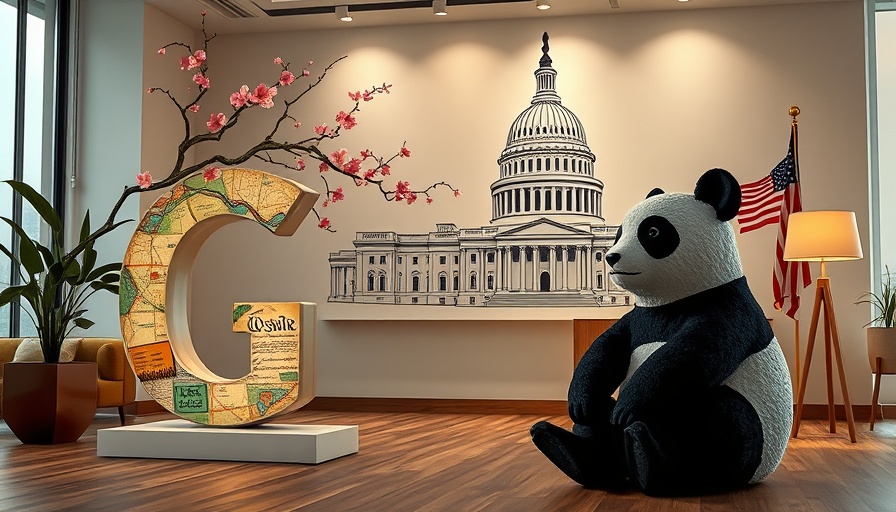
Google Creator Summit in D.C.: The Shift Towards Reader-Centric Content
Recently, Google hosted another Google Creator Summit, this time in Washington D.C., inviting a select group of seven creators to engage in discussions about contemporary content strategies. Over three days, these creators participated in events focusing on the evolving relationship between content creation and search engine optimization (SEO) under the auspices of the Google Search team, represented by prominent figures like Danny Sullivan and Paul Haahr.
Understanding the Selection Process
While the specific criteria for selecting the creators remain unclear, this event marked an important continuation of Google's outreach beyond California, promoting a dialogue that resonates across various sectors. Unlike the previous summit held at the GooglePlex, creator Tomiko Harvey highlighted the shift in focus from merely addressing SEO concerns to fostering a nuanced understanding of audience needs. Her unique perspective emphasized that Google recognizes the pitfalls of content designed primarily for algorithmic favor.
The Content Quality Debate
During the summit, a key takeaway emerged: creators are often ensnared in the trap of creating content for algorithms instead of their audiences. Tomiko lamented her previous approach, stating, "I walked away, realizing I was still writing for Google and not my readers, which really stung me because I thought I was doing the right thing." This revelation underscores a broader industry challenge where complacency led creators to prioritize keywords and fluff over clarity and reader engagement.
A Paradigm Shift: Quality over Quantity
More than ever, creators are being urged to revert to the basics – crafting content that genuinely addresses user queries. Google’s recent admissions during the summit emphasized an evolution in consumer search behaviors. No longer are readers satisfied with lengthy, keyword-stuffed articles; they now favor concise, insightful content. Sullivan and his team clarified that Google's AI is increasingly adept at gauging user satisfaction with search results, which consequently has influenced how the algorithms function.
Implications for Small Business Owners and Marketers
This evolving emphasis on quality content is particularly pertinent for small business owners and marketers. Many have historically relied on traditional SEO practices that emphasized long-winded narratives filled with keywords. As Google pivots, businesses have the opportunity to adapt their strategies accordingly — shifting from a focus on keyword density to crafting well-structured, impactful narratives centered on consumer experience.
Strategies for Today's Digital Landscape
To stay ahead in this rapidly changing digital environment, businesses should consider a variety of strategies:
- Authentic Engagement: Focus on fostering genuine connections with audiences through storytelling.
- Reader-Centric Content: Develop content that answers specific questions your target audience may have while avoiding unnecessary fluff.
- Adapt to Insights: Embrace data analytics to monitor content performance and user satisfaction, shaping future strategies based on these insights.
The Future of Google Search: What Lies Ahead?
As Google's algorithms evolve, it is crucial for creators and marketers to stay attuned to emerging trends. What's evident is that the focus on user experience and satisfaction is reshaping the landscape of SEO and content marketing. Adopting a more human-centered approach enables businesses to thrive while maintaining their relevance in an increasingly competitive digital marketplace.
Ultimately, the takeaways from the Google Creator Summit in D.C. send a clear message: it’s time to prioritize the audience. Small business owners, marketers, and content creators who adapt to these emerging trends will not only better serve their intended audiences but will likely enjoy greater success in their search visibility and engagement metrics.
As we move forward in this dynamic environment, let us embrace these changes and refine our strategies to align with what Google now prioritizes — impactful, reader-focused content. By leaning into AI tools designed to enhance efficiency and creativity in content creation, we can turn this challenge into an exciting opportunity.
 Add Row
Add Row  Add
Add 




Write A Comment